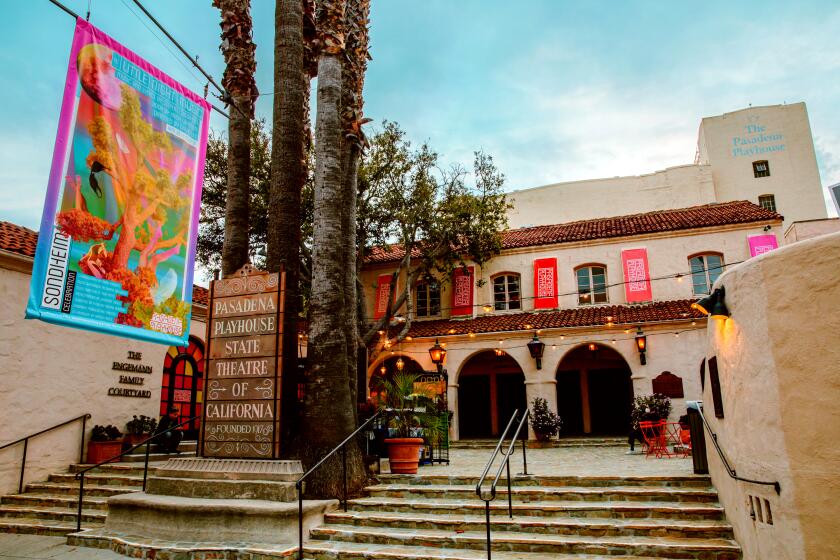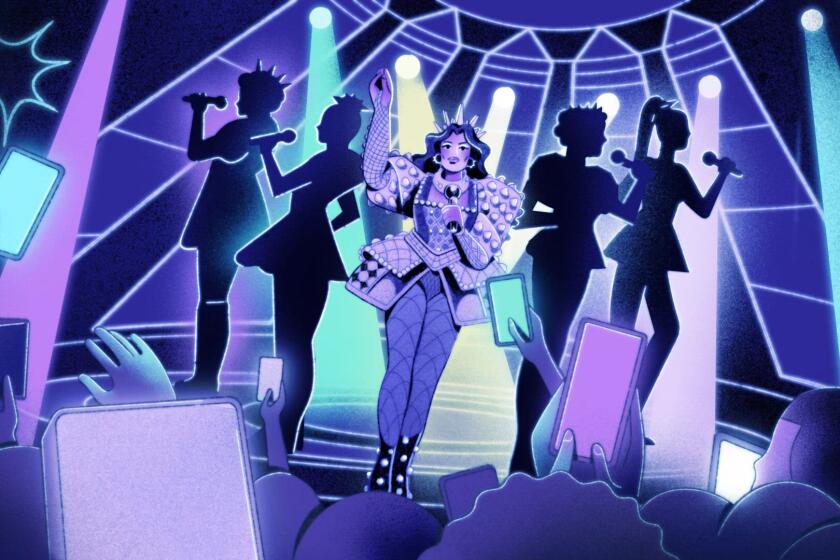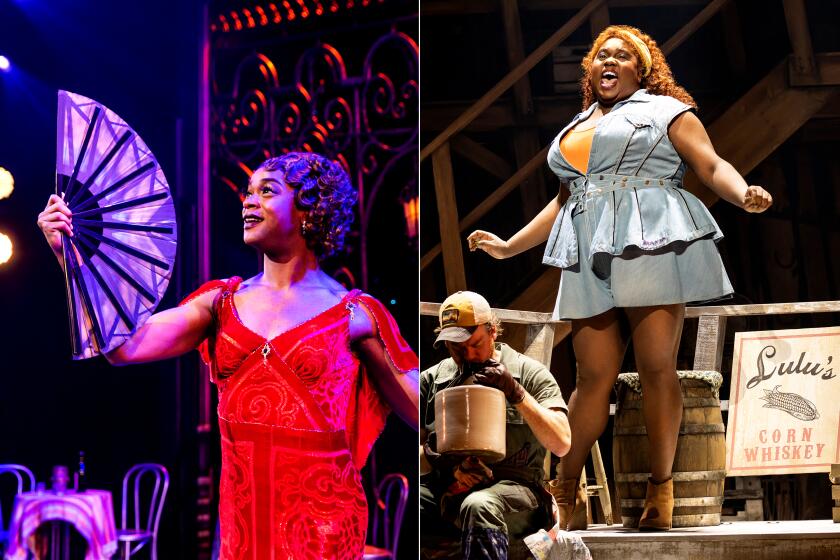After two ‘catastrophic’ years for Broadway, have the Tonys become too big to fail?
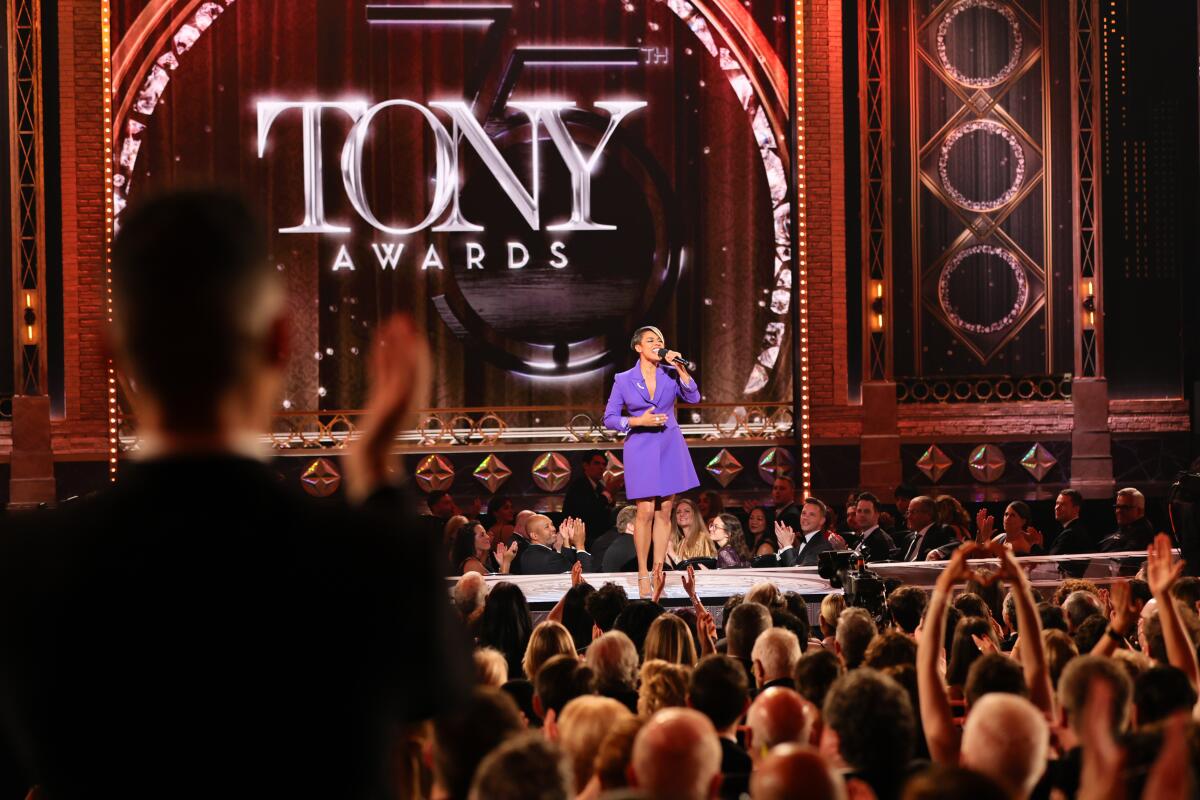
- Share via
For a few days earlier this month, Broadway producers panicked at the possibility that the Tony Awards would not air on television. Canceled and revived within the space of about 72 hours, the June 11 live ceremony was caught in the crossfire of the ongoing writers’ strike: Its broadcast home, CBS, is part of the Alliance of Motion Picture and Television Producers, the group with which the Writers Guild of America has been at an impasse since May 2.
“The Tony Awards was established to recognize excellence in the craft of theatermaking and all the different categories of people who work extremely hard to put on shows all year, but we just happen to celebrate on TV every year so that we can reach as many people as possible,” said Scott Sanders, theater producer and member of the Tony Awards Management Committee, the group that negotiated with the guild to avoid a Tony-night picket line.
“In our conversations with the WGA, we said, ‘We’re in complete support of your mission to get a fair and equitable contract,’” Sanders continued. “‘This year in particular, when the theater is just coming out of a two-year catastrophic window from COVID, is there any way that you can allow our show to continue?’”
Though it ultimately secured a compromise that will allow the ceremony to proceed, albeit in an altered form, the Tony Award Management Committee’s position — and the underlying fear of a Tonys-free year — exposed just how dependent the American theater industry has become on the annual celebration.
Pasadena Playhouse wins the Tony Award for regional theater excellence, becoming only the second Los Angeles institution to earn the honor and continuing its triumphant streak after years of turbulence.
Founded in 1947 and televised since 1967, the Tonys’ acceptance speeches and musical numbers are not a major force in the ratings; last year’s ceremony drew 3.9 million viewers, its second-lowest viewership ever recorded. But for an art form buffeted by a halting postpandemic recovery, rising ticket prices and competition with countless other entertainment offerings, the awards telecast remains perhaps the most important night of the year.
“It’s just a fact that Broadway shows don’t have the type of marketing budgets and general exposure that sporting events and movies do,” said “& Juliet” producer Eva Price. “And the number of people we can reach on any given night are finite because we’re confined to the four walls of our theater — not to every movie theater in the country, not to a 20,000-person stadium.
“But for so many people like me, who grew up in Chelmsford, Mass., and did not see my first Broadway show until I was 15, the Tony Awards is a way into Broadway that feels real and accessible,” she continued. “It’s a beautiful sales tool that actually has a very real ripple effect on the box office.”
The “Tonys bump” is particularly influential among tourists, many of whom plan their visits to New York City around the shows they plan to watch. “We see who wins, and then we immediately buy our tickets for our trip in the winter, six months in advance,” said Taylor Wyatt, a stay-at-home mom from just outside Orlando, Fla., who has traveled to New York with her mother annually for 18 years. “Because we know, once the Tonys air, everybody’s thinking the same thing: ‘This is the hit show this season, I have to see it.’”
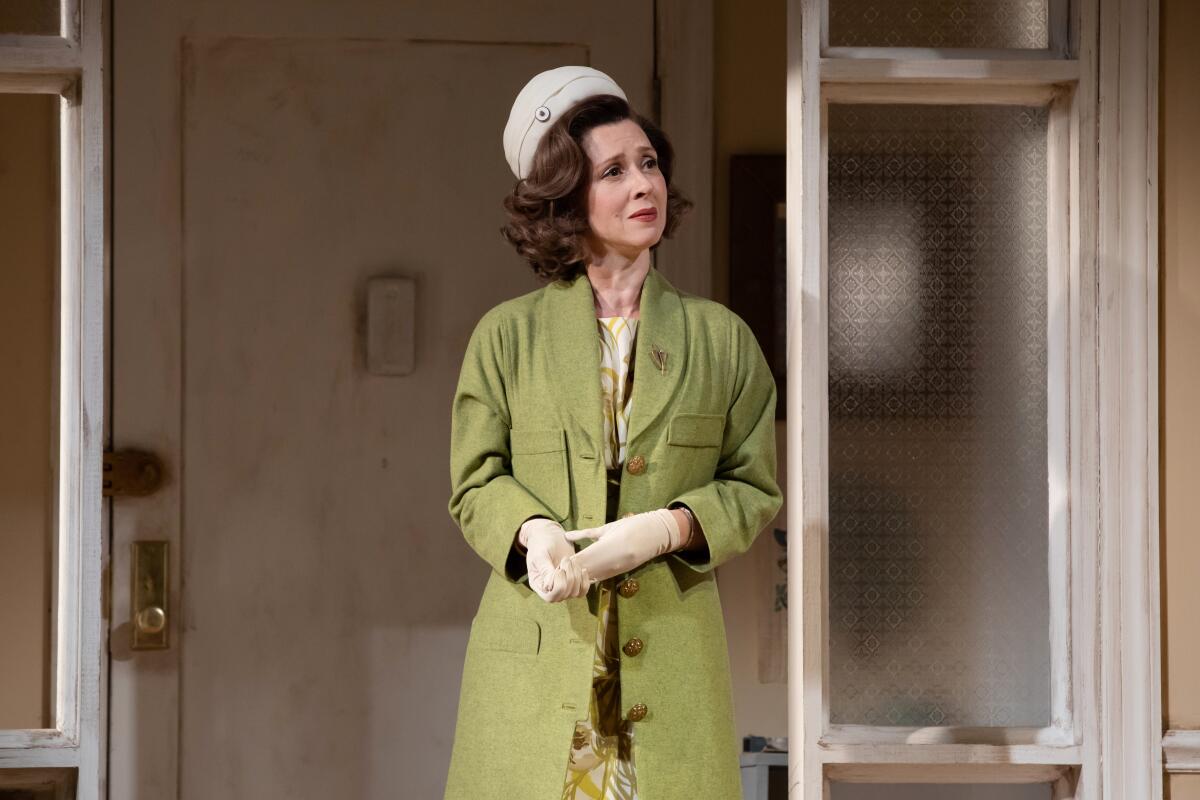
Though plays, unlike musicals, are only featured during the ceremony through brief, pretaped clips of the productions, victory can secure ticket sales from patrons faced with a plethora of options.
“There are people out there who are programmed to choose what they’re going to see based on what wins at the Tonys,” said John Johnson, who produced “The Sign in Sidney Brustein’s Window” and “Ain’t No Mo’” this season. “If they’ve been hearing about Jessica Chastain and Jodie Comer, sure, any person would like to see all of them, but between the resources of money and time, they’re not going to go see everything. And so when a show wins or a performer wins, it cuts through the conversation of what someone should see in a way that bumps you up to the top of people’s lists.”
The benefit isn’t limited to the marquee awards for best play, musical, and revivals, either — especially for productions with limited runs. When actors Glenda Jackson and Laurie Metcalf both won for 2018’s “Three Tall Women,” Johnson, also a producer on that show, saw “a nice boost.” People received a clear message, he said: “These are the performances of the year, and you have three more weeks to see them.” For already-closed shows, wins can help attract licensing from regional theaters, universities and high schools.
Filming live theater is usually a form of sacrilege. A musical about the wives of Henry VIII turned it into grassroots marketing for a new generation of fans.
For nominated musicals, which are highlighted through live performances of select numbers throughout the telecast, the Tonys are an even more important showcase. “Shucked,” a pop-country comedy set in a small town whose crop of corn has mysteriously gone awry, “is not based on anything and doesn’t have any stars in it,” said its producer Mike Bosner — but the Tonys can help establish a presence for recently opened shows that don’t yet have an easily recognizable brand. “The word ‘shucked’ means nothing to most people! So it’s 10 times harder to explain a show like ours to people when you’re not showing them what it is, and a performance on national television is the easiest way to do that.”
While the Tony nominations announcement can bring an initial boost — “Shucked” has sold a million dollars in advance tickets since it earned nine nominations earlier this month — a memorable musical performance can be particularly powerful. According to Bosner, “Beautiful: The Carole King Musical,” on which he was a producer, had been running on Broadway for seven months by the time of the 2014 Tonys, where it was up for seven awards. The Tonys performance, featuring King herself with the cast, “sent us through the stratosphere,” he recalled.
“The box office just kept going up and up and up, and we did nine productions around the world of that show. I don’t want to say that that’s only because of the Tony Awards; a good show finds its legs and finds its life. But the Tonys bring attention to these shows in a very real way.”
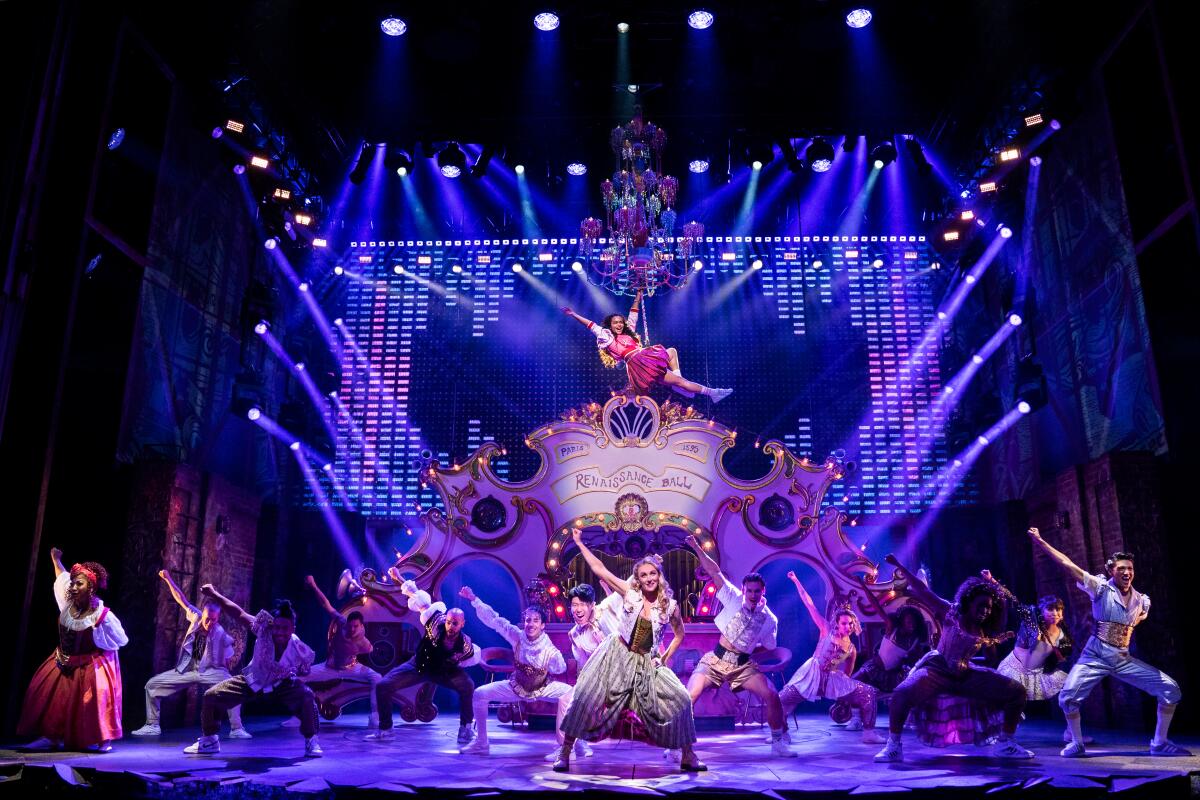
The importance of the Tony platform is reflected in the productions’ own investment in it. According to the Tony Awards Management Committee’s Sanders, who produced “The Color Purple” musical revival that received 4 nominations in 2016, fees for performers, musicians, costumers, movers and others can cost in the hundreds of thousands of dollars — and that’s only partially covered by the broadcast itself.
“When you’re talking about 30 cast members getting up there and doing a big musical number with singing and dancing, that’s an expensive proposition,” he said. “The shows contribute that substantial money to be on the Tonys because they see the value of having that 3 1/2-minute commercial for their musical.”
The best-case scenario? When a stellar performance wins over a skeptic. “I’m more of a jukebox musical guy — the artsy musicals aren’t usually my thing, and when I saw a couple of commercials for ‘Hadestown,’ that’s what I thought it was gonna be,” said Jason Broomfield, a mortgage underwriter manager in the Detroit area who visits New York regularly. “But their Tonys performance blew me away. I was really, really surprised, and I bought a ticket that night for the following weekend. Until that performance, ‘Hadestown’ was not something that I would have sought out at all.”
J. Harrison Ghee, Alex Newell make Tony Awards history as first nonbinary-identifying actor nominees
Ghee and Newell’s nominations follow last year’s historic first, when composer Toby Marlow’s became the Tony Awards’ first nonbinary nominee and winner.
Although this year’s Tonys will reportedly feature both the awarding of prizes and the performance of numbers from nominated shows, the prospect of its cancellation — and the backdrop of declining ratings for awards shows across the board — has raised the question: Is Broadway too reliant on the awards to spark interest and ticket sales? And in the age of streaming, time-shifting and social media, is focusing so much marketing muscle on a single night of live broadcast TV a sustainable long-term plan?
Numerous producers told The Times that counting on the Tonys bump is a dangerous strategy, especially for productions that have already been struggling to fill enough seats to cover operating costs. Unlike a movie playing for months in a cinema, the overhead for live theatrical productions continues throughout the run, yet it’s not uncommon for shows to operate at a loss for an extended period in the hope that a Tony nomination or win will change the financial picture.
“It may be a bit optimistic,” Sanders acknowledged, “if you open the show in February, and it’s struggling through March, April and May and barely hanging on by a thread, and the only answer is, ‘If we win the Tony for best musical, we can survive.’”
Still, producers understand why some shows tread water until the Tonys. “Sometimes, there is no other option, we’ve run out of different roads to go through, and that might really be the most viable path forward. There are situations where that is the case,” said Bosner.
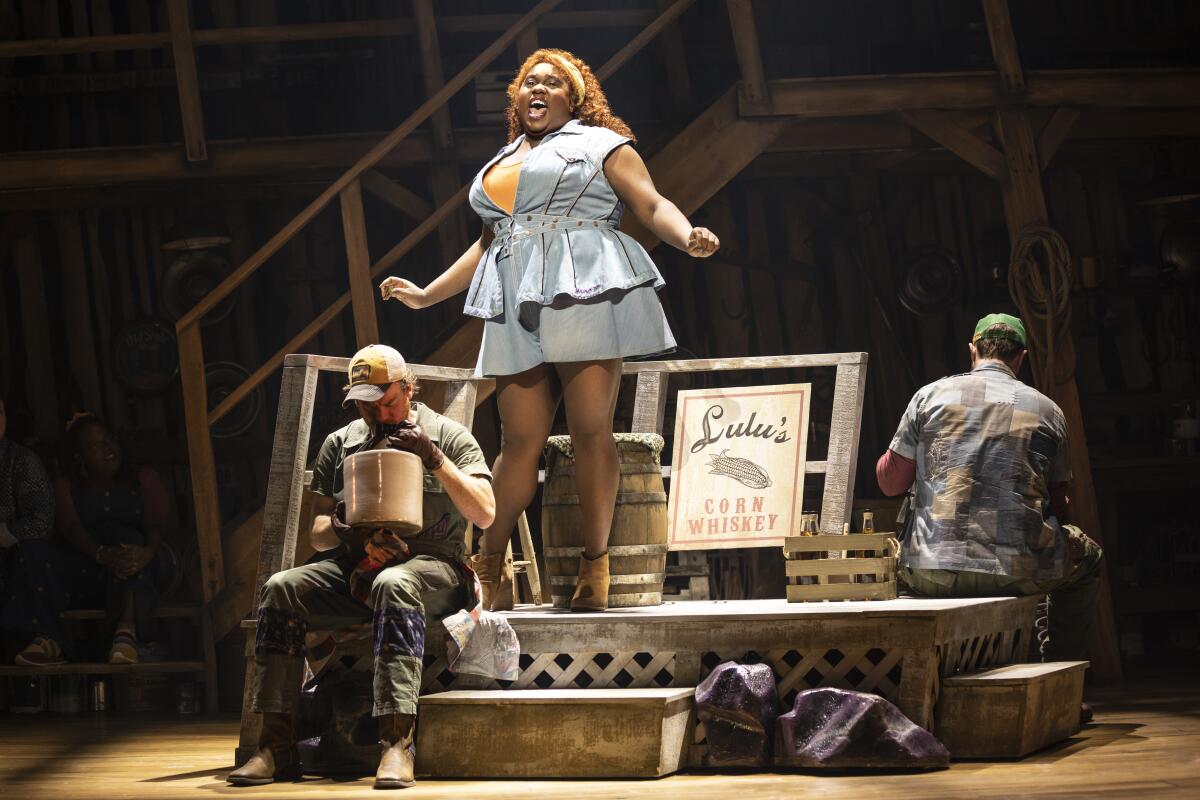
Several theatermakers have been inspired to explore other avenues for publicizing the nominated titles this year. “Shucked” became the first Broadway show ever to appear on “The Voice” when Alex Newell performed on Monday’s season finale, and “New York, New York” lyricist Lin-Manuel Miranda resurrected #Ham4Ham, a series of casual concerts outside the “Hamilton” venue that regularly go viral, to showcase selections from all of the best musical and revival nominees.
“It occurred to me that — as much as we love the Tonys — they should not be the be-all, end-all of your exposure to this incredible theater season,” Miranda said before an outdoor performance last week. “We have so much to celebrate, and we have such an amazing season of theater now that we are mostly through the pandemic, and people are coming to support live theater again.”
For now, though, the benefits Broadway reaps from the Tony Awards telecast outweigh the risks of tying the industry’s fate to a ceremony that’s subject to all the same disruptions as live theater, live TV and life itself. As Sanders acknowledged, “It’s a precarious art form.”
“There are some new shows that opened either in the late fall or spring that, if they don’t get this national television exposure, I would bet they would not have made it through the summer,” he said. “Delaying the Tonys until after the strike would have made a huge difference to hundreds of members of the theater community who would have lost their jobs because the shows would have closed, and it would have been devastating.”
Thankfully for the fans and artists, the ceremony will air live as scheduled, and its target audience will be tuned in . Broomfield already has a post-Tonys trip booked, and plans on purchasing tickets for shows later that night. “I would imagine that ‘Kimberly Akimbo’ is probably going to win the Tony this year. I’ve heard a lot of good things, but it’s not one of those shows I would normally seek out. But I’m looking forward to seeing them perform at the Tonys and seeing if it ends up being something that I want to see.”
More to Read
The complete guide to home viewing
Get Screen Gab for everything about the TV shows and streaming movies everyone’s talking about.
You may occasionally receive promotional content from the Los Angeles Times.
